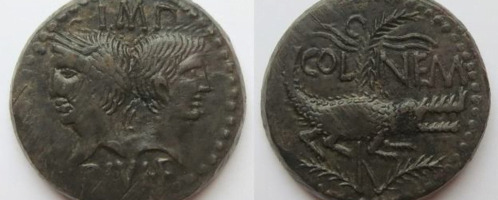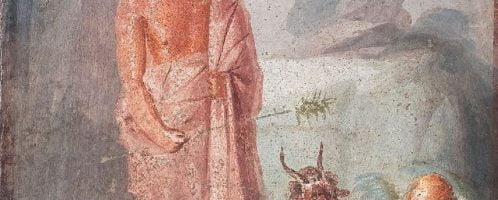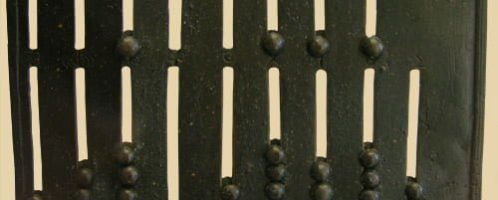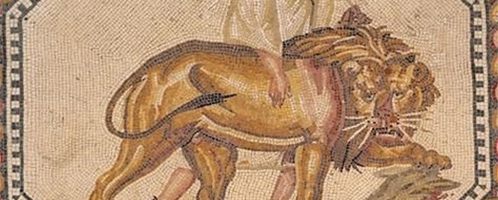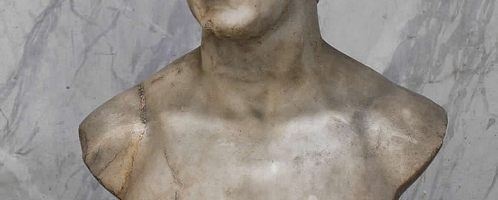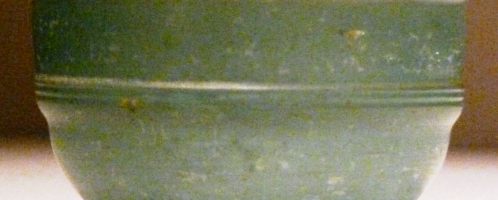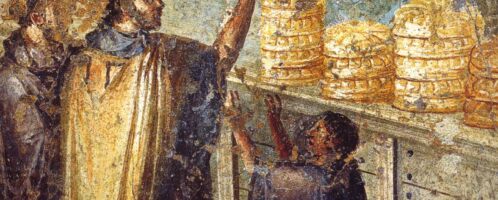Coin in honor of victory at Actium
Roman coin was minted in honour of Octavian Augustus’ victory over Mark Antony and Cleopatra in the battle of Actium in 31 BCE. Octavian and his friend and commander Marcus Agrippa are depicted on the obverse. On the reverse, there is a crocodile pinned to a palm branch, which symbolizes the joining of Egypt with Rome.

